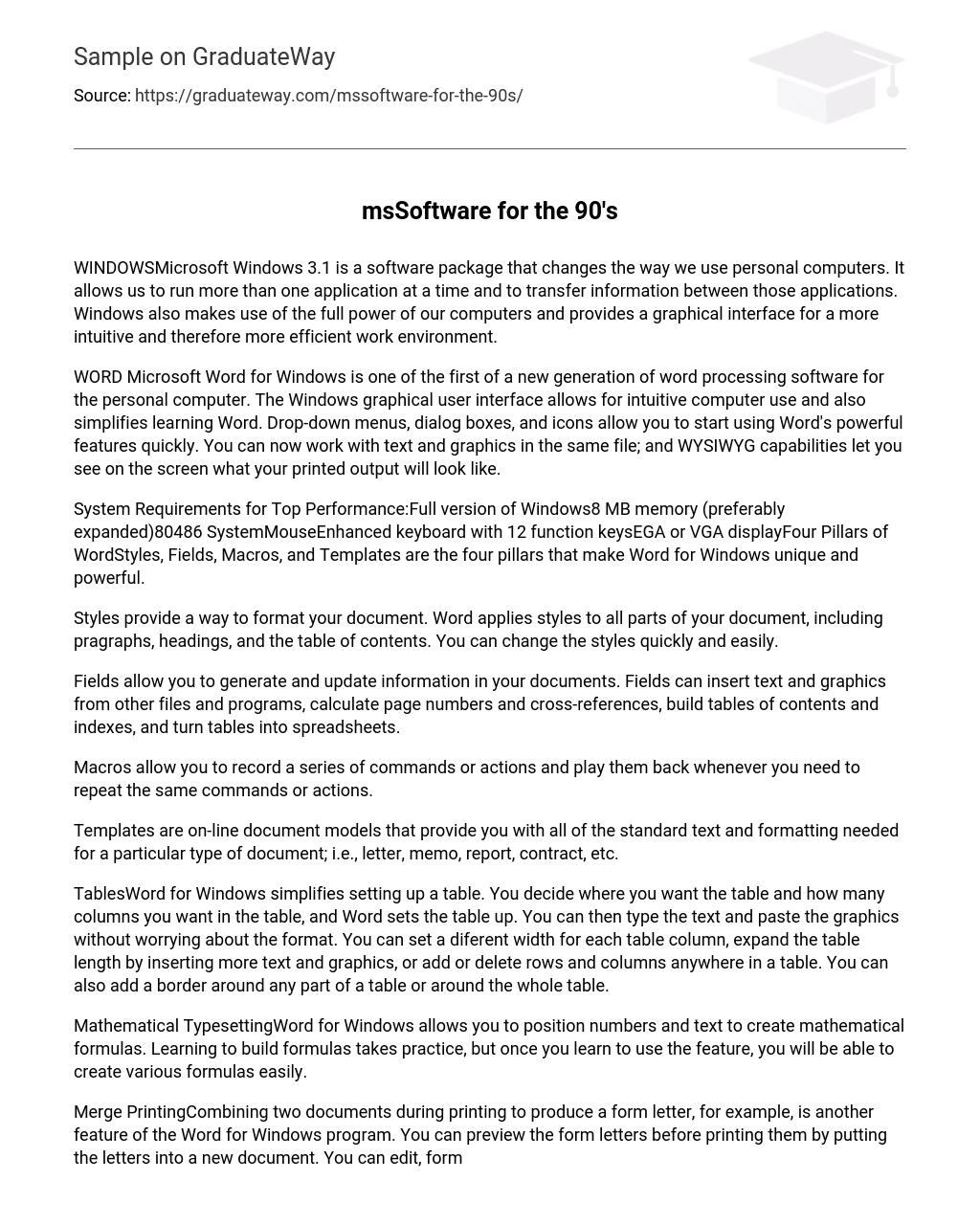WINDOWSMicrosoft Windows 3.1 is a software package that changes the way we use personal computers. It allows us to run more than one application at a time and to transfer information between those applications. Windows also makes use of the full power of our computers and provides a graphical interface for a more intuitive and therefore more efficient work environment.
WORD Microsoft Word for Windows is one of the first of a new generation of word processing software for the personal computer. The Windows graphical user interface allows for intuitive computer use and also simplifies learning Word. Drop-down menus, dialog boxes, and icons allow you to start using Word’s powerful features quickly. You can now work with text and graphics in the same file; and WYSIWYG capabilities let you see on the screen what your printed output will look like.
System Requirements for Top Performance:Full version of Windows8 MB memory (preferably expanded)80486 SystemMouseEnhanced keyboard with 12 function keysEGA or VGA displayFour Pillars of WordStyles, Fields, Macros, and Templates are the four pillars that make Word for Windows unique and powerful.
Styles provide a way to format your document. Word applies styles to all parts of your document, including pragraphs, headings, and the table of contents. You can change the styles quickly and easily.
Fields allow you to generate and update information in your documents. Fields can insert text and graphics from other files and programs, calculate page numbers and cross-references, build tables of contents and indexes, and turn tables into spreadsheets.
Macros allow you to record a series of commands or actions and play them back whenever you need to repeat the same commands or actions.
Templates are on-line document models that provide you with all of the standard text and formatting needed for a particular type of document; i.e., letter, memo, report, contract, etc.
TablesWord for Windows simplifies setting up a table. You decide where you want the table and how many columns you want in the table, and Word sets the table up. You can then type the text and paste the graphics without worrying about the format. You can set a diferent width for each table column, expand the table length by inserting more text and graphics, or add or delete rows and columns anywhere in a table. You can also add a border around any part of a table or around the whole table.
Mathematical TypesettingWord for Windows allows you to position numbers and text to create mathematical formulas. Learning to build formulas takes practice, but once you learn to use the feature, you will be able to create various formulas easily.
Merge PrintingCombining two documents during printing to produce a form letter, for example, is another feature of the Word for Windows program. You can preview the form letters before printing them by putting the letters into a new document. You can edit, format save, and print the new document just as you would any other document. Advanced merge instructions allow you to produce address labels by printing more than one data record in a printed document or to exclude records from the merge.
AutoTextAutoText is any amount of often used text or graphics stored in a named entry. You can keep text and graphics and their formatting in Autotext entries. Text can be any length, and graphics can be any size.
Previewing and Refining DocumentsYou can see on the screen exactly what your printer will produce and make corrections or adjustments before printing. There are five different views available in Word for Windows. Normal editing view and Draft View are for inserting, editing, and formatting text and graphics. Outline View is for organizing and structuring the contents of a document. Print Preview and Page Layout View are for previewing page layout and adjusting before printing.





